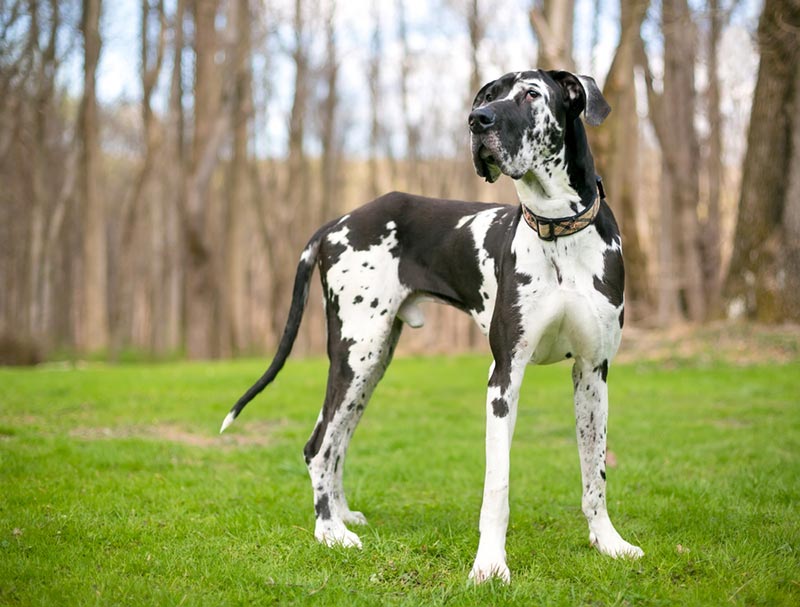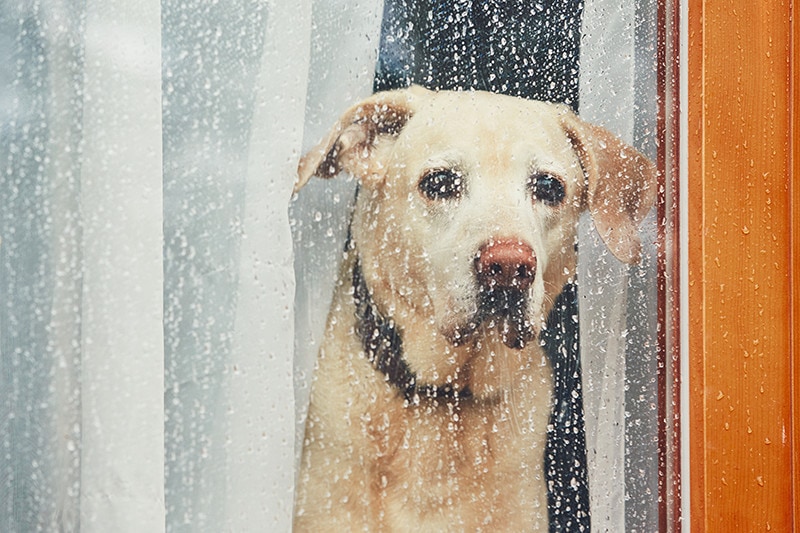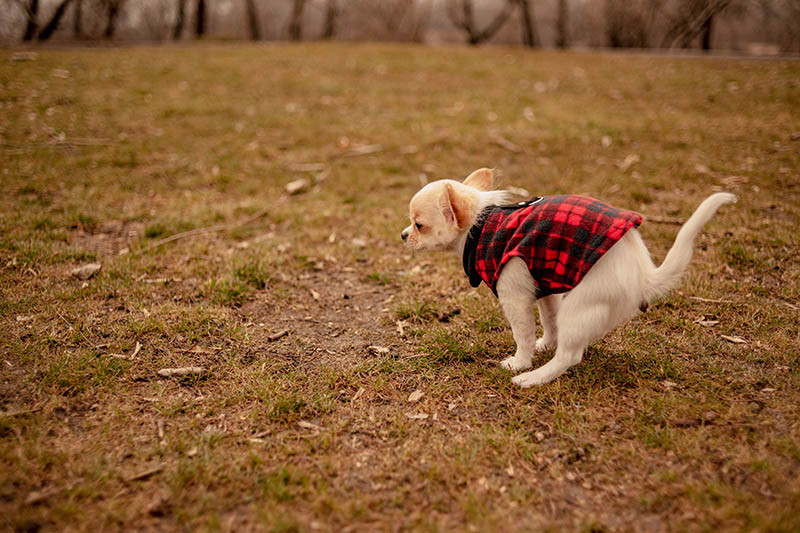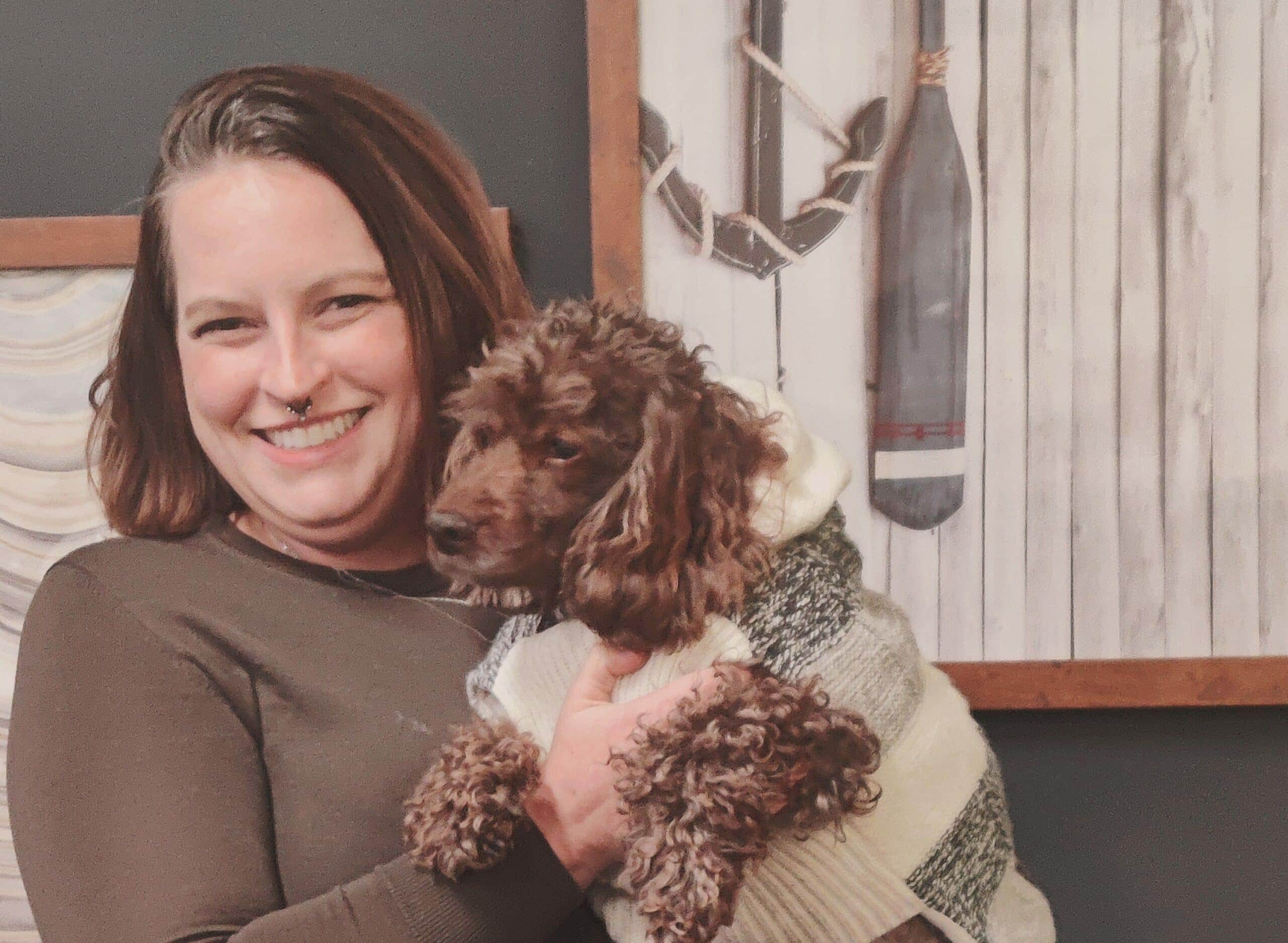Why Does My Dachshund Lick Me So Much? 7 Typical Reasons

Updated on
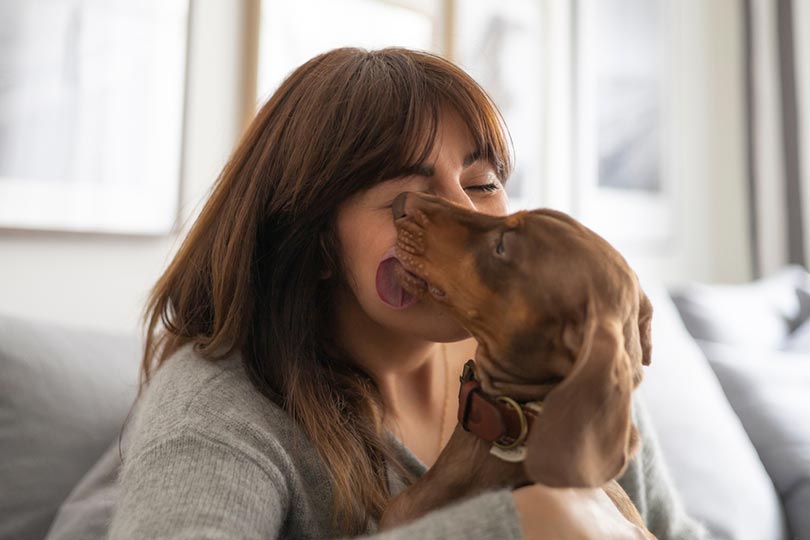
All dogs may lick, but dachshunds are known to be lickers. They lick clothes, blankets, chairs, the floor, and of course, their owners.
Dogs may lick you out of affection, boredom, or simply because your skin tastes good. There are many reasons why a dachshund may lick a lot, however, and some could indicate a problem. Here are the 7 typical reasons a dachshund may lick you.
The 7 Typical Reasons a Dachshund Licks You
1. Showing Affection
Licking releases endorphins for dogs. As puppies, dogs often lick their mother’s mouth and get licked in return, which reinforces the behavior. Once they’re older, they may seek this comfort by licking you to show their love and affection.
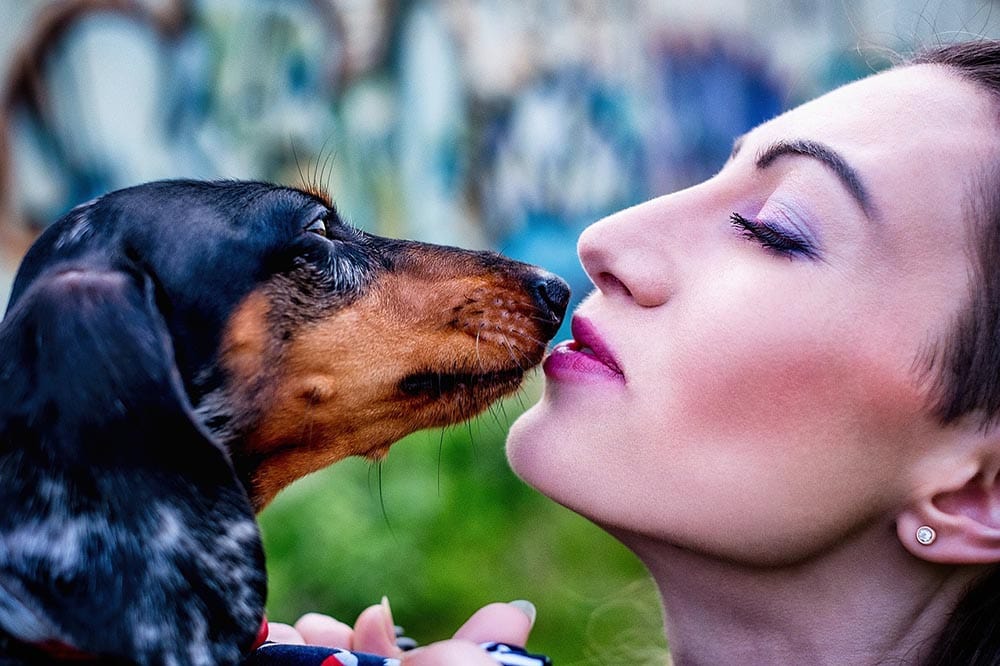
2. An Act of Submission
In packs, dogs lick their lips or lick others as an act of submission. This shows deference to the members of the pack with a higher pecking order. In your home “pack,” this is you!
3. You Taste Good
Our sweat contains salt, which may taste good to a dog. They may also like the taste of body lotion or body wash. And when you cook, you may get oil, grease, or other delicious cooking residues on you that your dog wants to sample. Remember, dogs use taste to explore and understand their surroundings, and their sense of smell is much stronger than ours.
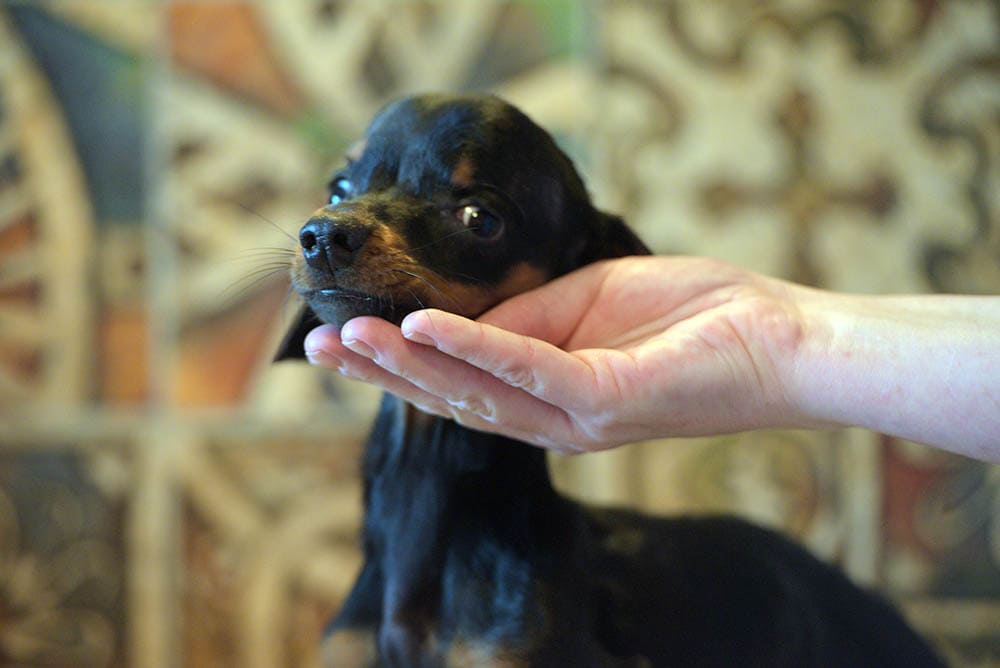
4. Attention Seeking
Licking is a good way to get your attention, especially if you react to it. You may pet your dog or fuss over it, reinforcing the behavior. Now, your dog knows that licking you is the way to get attention and affection. If the licking becomes too much, you can use training techniques to extinct the behavior out of your dog.
5. Instinct
Licking is an instinct for a dog. Mothers lick their puppies to keep them clean, give them comfort, and encourage them. Puppies groom each other as well, which not only cleans but shows love and affection. Naturally, these behaviors extend to their humans as part of the “pack.”
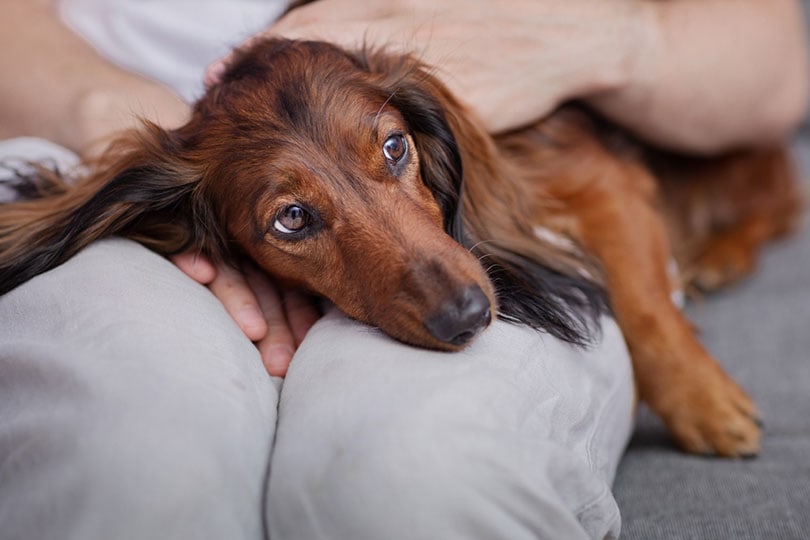
6. Behavioral Issues
If your dog licks you and everything else, it could be a self-soothing or compulsive habit. Some dogs lick out of boredom to anxiety, turning it into a habit that’s hard to break. Separation anxiety may also contribute to this behavior.
Licking may seem harmless, but it’s possible for your dog to ingest dangerous substances because of it. Licking can also progress to destructive behavior. You can curb or prevent excessive licking by giving your dog more stimulation throughout the day, including brisk walks, games of fetch, or some playtime with tug toys or puzzle toys during the day.
7. Medical Issues
Excessive licking has been linked to nausea, pain, and gastrointestinal problems in dogs. If that is the case, the dogs will typically lick not only their owners but also themselves and random objects.
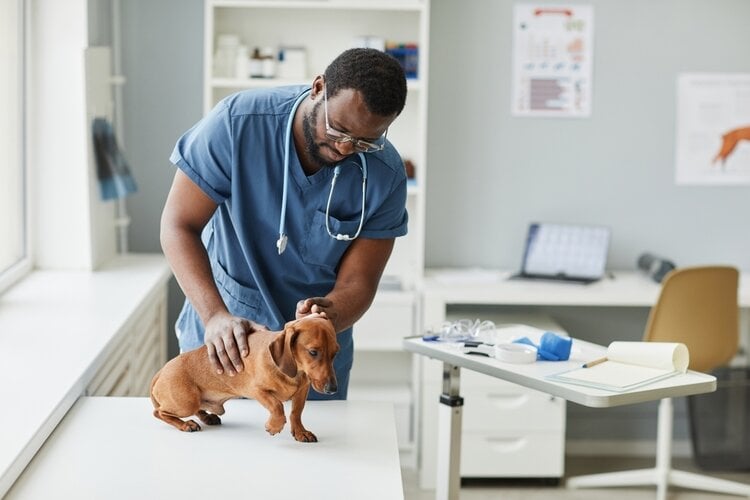
How to Train Your Dog Not to Lick
Licking can be sweet, but it can also grow into an unpleasant compulsion that could lead to destructive behaviors or self-harm. If medical causes are ruled out, then you have a behavioral issue to address.
- Ignore it: Dogs may use licking as a way of getting attention. If you’re trying to discourage this behavior, stand up and walk away whenever your dog licks you. Over time, this will show your dog that licking doesn’t get it what it’s looking for.
- Reward it: You should also reward your dog for lying beside you without licking or seeking attention.
- Redirect its attention: When your dog licks you, distract it with an activity like an interactive puzzle toy or going through tricks like “fetch” or “rollover.”
- Set boundaries: Your dog will be confused if it’s allowed to lick sometimes but not others. Set boundaries and teach your dog to express affection in ways you enjoy, like speaking or hugging you.
- Get a lick pad: While this won’t discourage licking overall (it actually encourages it), you can redirect your dog and give it a healthy outlet for soothing licking behaviors. Lick pads are flat pads with grooves where you put peanut butter, yogurt, or other dog-safe foods. Your dog is tasked with licking the food from between the grooves, which can provide enrichment and stimulation.
Summing Up
Dogs licking can be a nice sign of affection or love. If it’s excessive, it could be a sign of a behavioral issue or a medical one. Be sure to consult with your vet to determine possible medical causes, and if all are ruled out, work on training your dog to show affection in more appropriate ways.
Featured Image Credit: A Traves del Prisma, Shutterstock




